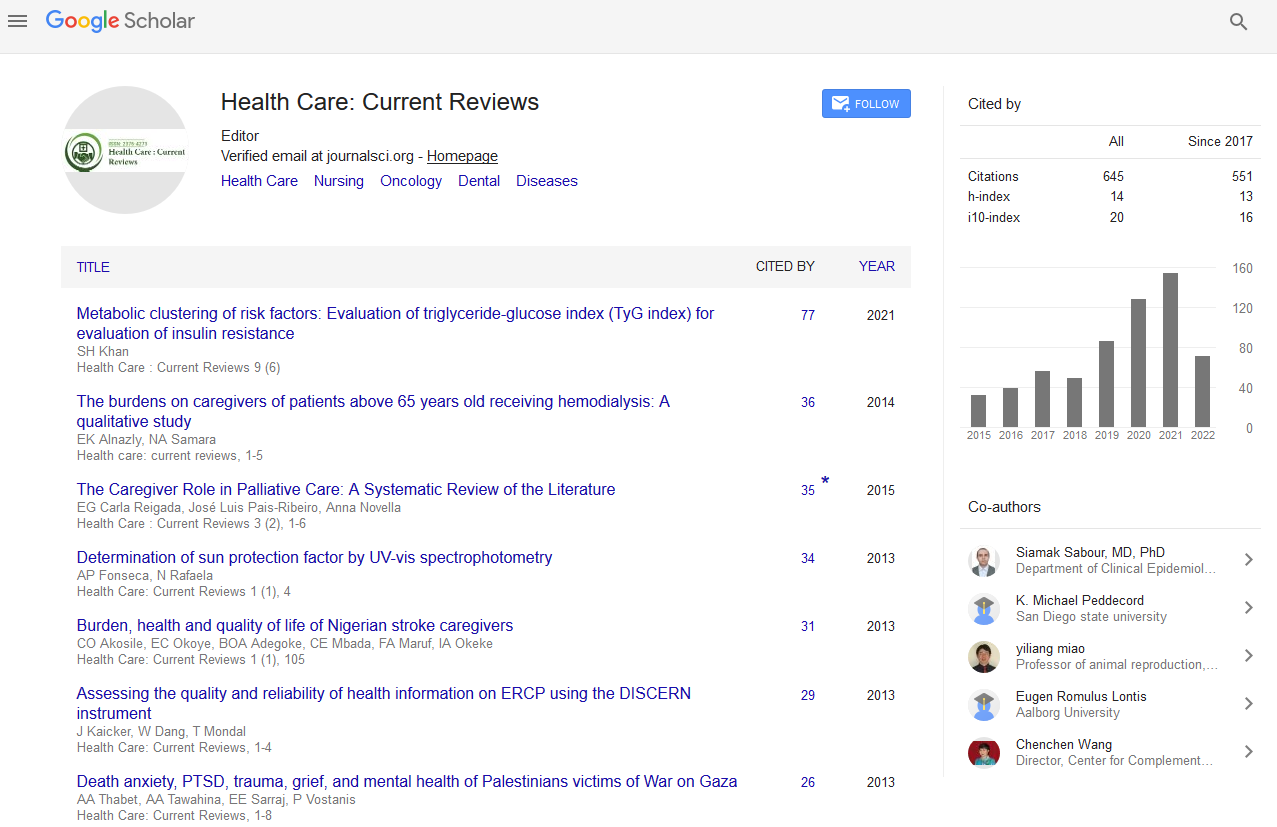PMC/PubMed Indexed Articles
Indexed In
- Open J Gate
- Academic Keys
- RefSeek
- Hamdard University
- EBSCO A-Z
- Publons
- Geneva Foundation for Medical Education and Research
- Google Scholar
Useful Links
Share This Page
Journal Flyer

Open Access Journals
- Agri and Aquaculture
- Biochemistry
- Bioinformatics & Systems Biology
- Business & Management
- Chemistry
- Clinical Sciences
- Engineering
- Food & Nutrition
- General Science
- Genetics & Molecular Biology
- Immunology & Microbiology
- Medical Sciences
- Neuroscience & Psychology
- Nursing & Health Care
- Pharmaceutical Sciences
Anxiety and depression as emotional problems in patients with chronic heart, kidney and respiratory disorders
18th World Congress on Clinical Nursing & Practice
September 21-22, 2018|Prague, Czech Republic
Ozlem Dogu,Ozlem Simsek and Yusuf Aydemir
Sakarya University, Turkey
Scientific Tracks Abstracts: Health Care Current Reviews
Abstract:
Psychiatric comorbidities are common in people with chronic diseases and negatively influence their life quality. Our study was conducted to evaluate the emotional status of patients receiving inpatient treatment for chronic heart, kidney and respiratory tract diseases and to identify the factors associated with anxiety and depression. Three hundred and one patients with psychiatric diseases, hospitalized in the chest, cardiology and nephrology clinics between 2014 and 2016, were included. Data were collected from face to face interview. Socio-demographic characteristics were recorded. Emotional status was determined by the "Hospital Anxiety and Depression Scale (HAD)" consisting of 14 questions answered by the patient. The anxiety rate was 52.2% and the depression rate was 81.7%. There was anxiety in 66% of patients with respiratory disease, in 46.6% of patients with heart disease and in 44.3% of patients with renal disease. The difference between groups was statistically significant (p=0.027). Depression was found to be 89.7% in cardiac, 86.6% in respiratory and 65.9% in renal patients and there was no statistically significant difference between the groups (p<0.001). The relationship between emotional status and sociodemographic characteristics was examined and no difference was found in terms of gender, marital, working status and education level. There was a significant positive correlation between age and depression scores (r=0.173, p=0.003). Psychiatric comorbidities such as depression, anxiety, respiratory, heart and kidney diseases can negatively affect the treatment process of patients and may alleviate somatic diseases. Thus, it may be useful to provide psychosocial support besides treatment of such chronic diseases.
Biography :
Ozlem Dogu has completed her PhD from Istanbul University. She has worked nearly 10 years in coronary intensive care nursing. She has been working as an Assistant Professor for one year at Sakarya University. She has published more than 20 papers in reputable journals.
E-mail: ozlemdogu@sakarya.edu.tr


